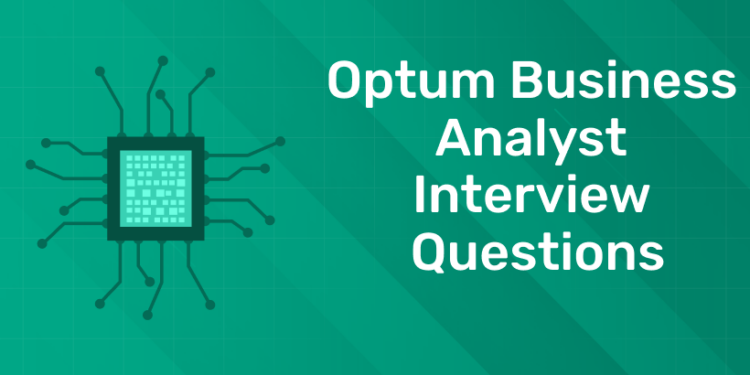Table of Contents
Landing a role as a Business Analyst at Optum is a significant career milestone for professionals who are passionate about combining analytical expertise with the opportunity to make a meaningful impact in healthcare. In this blog, we’ll explore the essential Optum business analyst interview questions that you can expect. Whether you’re a seasoned analyst or transitioning into the healthcare domain, these questions will help you understand the key skills, technical knowledge, and problem-solving abilities Optum seeks in candidates.
Enhance your data science skills with us! Join our free demo today!
Why Join Optum?
Joining Optum can be a compelling choice for several reasons, depending on your career goals and aspirations. Here are some key reasons to consider:
1. Impactful Work
Optum is a part of UnitedHealth Group, a global leader in healthcare services. By working at Optum, you contribute to improving healthcare systems, making a real difference in the lives of millions worldwide.
2. Innovation-Driven Environment
Optum heavily invests in technology and innovation, using data analytics, AI, and advanced tools to transform healthcare delivery. This provides opportunities to work on cutting-edge projects that shape the future of healthcare.
3. Global Opportunities
With a presence in over 150 countries, Optum offers a chance to collaborate with diverse teams, explore global roles, and gain international exposure.
4. Career Growth
Optum emphasizes professional development through training programs, certifications, and mentorship, ensuring employees have opportunities for career advancement.
5. Focus on Work-Life Balance
Optum provides flexible work options, wellness programs, and comprehensive benefits, ensuring employees can balance their professional and personal lives.
6. Financial Stability and Benefits
As a part of UnitedHealth Group, Optum offers competitive salaries, performance-based incentives, retirement plans, and robust healthcare benefits.
Top Optum Business Analyst Interview Questions and Answers
1: Which of the following algorithms is most suitable for classification tasks?
Technical Questions
What tools do you use for data analysis and reporting?
Mention tools relevant to the role, such as SQL, Tableau, Excel, or Power BI, and provide examples of how you’ve used them.
Example: “I frequently use SQL for querying databases and Tableau for creating dashboards. For instance, I built a Tableau dashboard that visualized key metrics, reducing report generation time by 50%.”
How do you handle requirements gathering?
Describe your approach, focusing on stakeholder engagement and clarity.
Example: “I conduct workshops, interviews, and surveys to gather requirements. I ensure clarity by documenting use cases and validating them with stakeholders through sign-offs before moving forward.”
Explain the difference between functional and non-functional requirements.
Functional requirements: Describe what the system should do, e.g., “The system should allow users to book appointments.”
Non-functional requirements: Specify system qualities, e.g., “The system should handle 1,000 users simultaneously.”
Healthcare Domain-Specific Questions
How do you approach analysing healthcare data?
Demonstrate your understanding of healthcare systems, regulations, and data formats.
Example: “I focus on data quality, compliance with HIPAA, and meaningful use metrics. I also analyze patient data to identify trends and provide actionable insights for improving care delivery.”
What is your understanding of Optum’s role in the healthcare industry?
Research and align your response with Optum’s mission.
Example: “Optum focuses on using technology and data to improve healthcare delivery and outcomes. Its work in analytics, care management, and operational efficiency is pivotal to transforming the healthcare system.”
Scenario-Based Questions
How would you handle a situation where stakeholders disagree on a requirement?
Show your ability to mediate and resolve conflicts.
Example: “I would hold a meeting with the stakeholders to understand their perspectives and align the requirements with business objectives. I might propose a compromise or prioritize requirements based on impact.
Behavioral Questions
Tell me about yourself.
Share a concise overview of your professional background, highlighting your skills, achievements, and why you’re interested in the role at Optum.
Example: “I have 4 years of experience as a Business Analyst, primarily in healthcare IT. My expertise lies in data analysis, process improvement, and stakeholder management. I am particularly excited about Optum’s innovative approach to healthcare and see this role as an opportunity to contribute to meaningful change.”
Describe a time you handled a challenging project.
Use the STAR method (Situation, Task, Action, Result) to describe a project, focusing on your problem-solving and analytical skills.
Example: “In my previous role, I led a project to streamline patient data integration, which faced resistance from stakeholders. I held regular meetings to address concerns, built a detailed project plan, and delivered training. The project reduced data errors by 30% and improved reporting accuracy.”
How do you prioritize conflicting tasks?
Highlight your ability to assess urgency and importance while communicating effectively with stakeholders.
Example: “I prioritize by understanding deadlines, impacts, and stakeholder requirements. I use tools like RACI charts to manage responsibilities and communicate proactively to adjust priorities as needed.”
🚀 Start Coding Today! Enroll Now with Easy EMI Options. 💳✨
Equip yourself with in-demand skills to land top-tier roles in the data-driven world.
Start Learning Now with EMI OptionsInterview Preparation Tips
- Research Optum and understand its mission, values and recent projects.
- You might be assessed for problem solving skills. Be prepared to face situation based questions.
- Be well versed in BA tools and methodologies.
- Attempt mock interviews to practice your responses to technical, behavioral, and situational questions with a friend or mentor.
Conclusion
Joining Optum is ideal if you’re passionate about leveraging your skills to transform healthcare while growing in a dynamic and supportive environment. Preparing for this role requires a clear understanding of the role, its responsibilities, and the company’s expectations. By reviewing common interview questions, focusing on key area such as business analysis techniques, healthcare domain knowledge, and problem solving skills, you can build the confidence needed to excel.
Enhance your data science skills with us! Join our free demo today!












